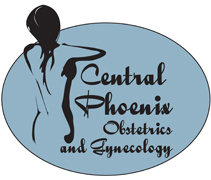 Prescription medicines and vitamins may be a part of your regimen to stay healthy but use comes with responsibilities
Prescription medicines and vitamins may be a part of your regimen to stay healthy but use comes with responsibilities
- Take medications as prescribed
- Store and dispose of medications safely
- Minimize risk of use and abuse by others
*Almost 7,000 overdose and 1,000 deaths in AZ this year!
*Arizonans make about 10,000 calls per year regarding possible medication poisoning in children.
The Do’s and Don’ts of Safe Medicine Storage
- DO ask your pharmacist if any of the medicine you have been prescribed may have the potential for abuse.
- DO lock up medicine that is at risk for being abused.
- DO keep medicine in a cool, dry place.
- DO keep medicines out of reach of children and pets.
- DO store medicine in its original container—labels have important instructions and information about the medication.
- DO keep an updated list of all prescription medication in your home.
- DO take a medication inventory twice yearly (Spring and Fall?).
- DON’T store medication in the bathroom medicine cabinet—humidity and temperature changes can cause damage.
- DON’T share prescriptions—prescription medications are for individual needs. And at the very least someone may be allergic.
- DON’T take medicines in front of children. They often mimic adults.
Where and how you store your medication can actually affect how well it works for you. Properly taking care of your medicine is very important.
Traveling with Medication
- Medications in pill or other solid form must undergo security screening.
- Clearly label to facilitate the screening process.
- .Medication can undergo a visual or X-ray screening and may be tested for traces of explosives.
- Accessories associated with your liquid medication such as freezer packs, IV bags, pumps and syringes should be identified and screened.
- You may bring medically necessary liquids, medications and creams in excess of 3.4 ounces or 100 milliliters in your carry-on bag.
- Do not keep medicine in your car. Medicine can get hot, cold or have contact with fluids.
Dispose of Medication Safely
- Check the label. Some medicines can be flushed down the sink or toilet.
- Consult the U.S. Food and Drug Administration’s listof medicines recommended for disposal by flushing.
- Almost all medicines can be thrown into your household trash.
- Remove the drugs from their original containers and mix them with something undesirable, such as used coffee grounds, dirt, or cat litter. This makes the medicine less appealing to children and pets and unrecognizable to someone who might intentionally go through the trash looking for drugs.
- Put the mixture in something you can close (a re-sealable zipper storage bag, empty can, or other container) to prevent the drug from leaking or spilling out.
- Throw the container in the garbage.
- Scratch out all your personal information on the empty medicine packaging to protect your identity and privacy. Throw the packaging away.
- If you have a question about your medicine, ask your health care provider or pharmacist.
- There are also “drug give back” programs that are sponsored by community organizations.
Opioids
- In January 2018 AZ passed legislation changing how narcotic pain medicines are prescribed.
- People who have chronic pain conditions can still be treated.
- Law requires limited supplies and regular evaluation.
- You still need to be vigilant in storing and destroying your medication once at home.
- Use narcotics only as directed by a health care provider and when needed for PAIN.
- NEVER share narcotics.
